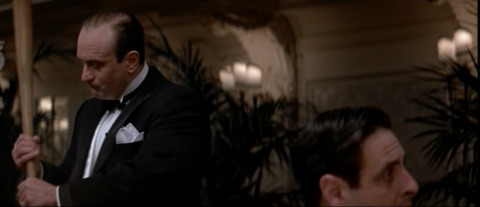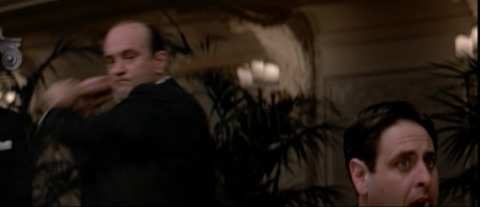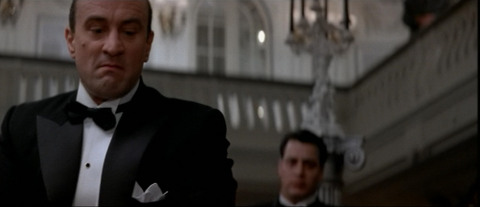[I like this post, but it is quite long. You maybe don’t want to start reading it 5 minutes before your bus leaves for work, or anything like that.]
Must have been 4 or 5 years ago that the Taiwanese political parties passed a referendum law. The China Post was opposed then, and hasn’t changed its stance since.
Advocates of the referendum argue that certain decisions are best determined directly by the people and claim that such direct votes are a mark of democracy. The fact is, the referendum has been used by dictators such as Hitler and Mussolini, who used the practice to implement oppressive policies under the guise of populism. If referendums are a good way for the public to express their opinions on public issues, why should elections of people’s representatives such as city councilors and legislators, be held? Voters in a referendum may be insufficiently informed about the questions they are asked, especially if the questions concern complicated issues. In Taiwan, most of the people living in the urban areas of the north are highly educated, and therefore able to deliberate carefully and independently on political matters. But residents of the south are much likely swayed by propaganda or large-scale advertising campaigns. And the DPP is currently carrying out an expensive propaganda effort to promote the idea that the island should seek U.N. membership under the name of Taiwan.
This is all worthy of a response.
Advocates of the referendum argue that certain decisions are best determined directly by the people and claim that such direct votes are a mark of democracy.
Um, yeah. The word democracy is derived from the Greek demos (common people) and kratos (rule or strength). When we speak of democracy we mean rule by the people, and part of the way the people rule is by voting. As long as referendum votes are conducted in a free and fair manner, the result IS a mark of democracy, by definition.
The world’s first democrats, the ancient Athenians, used to call their citizens to a nearby hill known as the Pnyx, to listen to debates and vote afterwards. For any nation-state that’d be a tough act to emulate – imagine herding 10 million Taiwanese onto Yangmingshan Mountain to vote 10 times a year. Given the difficulties involved, referendums represent a far more practical method for directly consulting the electorate about the issues.
The China Post then denigrates referendums, using the logical fallacy reductio ad Hitlerum:
The fact is, the referendum has been used by dictators such as Hitler and Mussolini, who used the practice to implement oppressive policies under the guise of populism.
This argument can be used to “discredit” any number of policies, including representative democracy itself. To wit:
The fact is, representative democracy was used by dictators such as Hitler and Mussolini, who used this system of government to obtain power. (The implication being that representative democracy is dangerous, because it somehow leads to fascism.)
Or, how about this one:
The fact is, police forces were used by dictators such as Hitler and Mussolini, who used them to implement oppressive policies. (Here it’s implied that police forces everywhere ought to be abolished immediately, because they allow dictators to oppress people.)
What’s important to remember is that if Hitler and Mussolini used (or rather, abused) referendums, then that’s not necessarily an argument against referendums – only against their misuse. Likewise, communist parties worldwide used to hold phony elections; again, that’s not a reason for eschewing elections – only phony ones. And finally, that police can be used as instruments of tyranny is something that should give us all pause. But rather than disbanding those who serve and protect us from criminals, we should instead think about institutional changes to police forces as well as to the political system that would reduce the odds of such an eventuality.
I took the liberty of checking out the circumstances surrounding one of the Nazi referendums the China Post alluded to:
Nazi Germany was striving to annex Austria during the late 1930s, which was fiercely resisted by the Austrian Schuschnigg dictatorship. When the conflict was escalating in early 1938, Chancellor Schuschnigg announced a plebiscite on the issue on [March 3, 1938], which was to take place on [March 13, 1938]. [A day before the referendum was to be held], German troops entered Austria, who met celebrating crowds, in order to install Nazi puppet Arthur Seyss-Inquart as Chancellor. With a Nazi administration already in place and the country integrated into the Third Reich, a referendum on [April 10, 1938, and widely considered to be rigged,] approved of the annexation with a majority of 99.73%.
99.73%. In other words, somewhere in the vicinity of Saddam Hussein’s re-election numbers. Surely that’s an indictment of RIGGED referendums, not referendums of the free and fair variety.
(One last thought on this: How many, if any, Nazi referendums could ever be considered as free and fair ones? Because even if the Nazis HAD been 100% scrupulous in their vote counting, they still had complete control of the press. As a result, no voices alternative to their own could be heard by the electorate. Under such circumstances, informed reasoning about the issues was well-nigh impossible.)
Moving right along, the China Post has another objection:
If referendums are a good way for the public to express their opinions on public issues, why should elections of people’s representatives such as city councilors and legislators, be held?
The Post partially answers its own question in the next sentence:
Voters in a referendum may be insufficiently informed about the questions they are asked, especially if the questions concern complicated issues.
There’s more to it than that, of course. There are many issues which voters may view as being trivial, or at least, not being worth their time. Few people are interested in holding a referendum to hire a new dogcatcher. Too many referendums are an expensive proposition, in terms of time AND money. It’s simply more expedient for citizens to use the services of democratically-elected leaders to make certain kinds of decisions.
Does that mean referendums have NO role to play in a democracy? Hardly. To see exactly how referendums might contribute to society’s political satisfaction, it might be helpful to consider about how we obtain satisfaction in the world of economics, specifically in the acquisition of consumer goods.
Suppose you want to buy a car, and you’re limited by a certain budget. You look at magazines, at the internet, and sound out your friends. When you have that information, you go to the dealer. At some point, you hand him a list outlining the options you want. Air con, bucket leather seats, sunroof – it’s all there, in black-and-white.
With any luck, at the end of this ordeal, you wind up getting a car bundled with the features you wanted. To be sure, you won’t get a Rolls Royce for the price of a Volkswagon, but you should get what you’ve paid for. And you’re about as satisfied as you can be, provided there aren’t any nasty surprises in store.
The process is roughly the same for other goods as well. Granted, a camera dealer won’t customize a digital camera for you like the car dealer will. But you CAN write up a list of necessary functions, and find something pretty close to what you want over at Steve’s Digicams. Once more, you obtain satisfaction by receiving the bundle of functions you wanted, for the price you can afford.
Unfortunately, it doesn’t really work this way in a representative democracy. The best political party for me – the one that has the exact bundle of policies that appeals most to me – is most likely some fringe party that stands little chance of winning. I know very well that if I vote for them, I’ll throw my vote away. So instead I chose one of the major parties, on the premise that getting some of my favorite policies enacted is better than getting none of them.
It’s a rational compromise, but it’s still a compromise. My political satisfaction
would have been greater had my “ideal” candidate been elected; it’s less when my “acceptable” candidate wins instead. But that isn’t merely my problem – millions of people end up feeling the same way, because those folks didn’t get their “ideal” candidate, either. Furthermore, our unhappiness will be intensified if our “acceptable” candidate takes his election as a mandate for ALL of his policies, and starts enacting his unpopular ones.
Here, the virtue of referendums become clear. Referendums are one way of unbundling unpopular policies from popularly-elected leaders. They’re an additional check-and-balance – a way for voters to veto the more marginal, fringe ideas of politicians who are largely acceptable in most other respects.
Let’s take a look at the Swiss, who’ve been employing referendums for over a hundred years, with nary a Mussolini in sight:
Frequent referendums do have an influence on they way both parliament and government act. Experience shows that a party defeated in parliament will call for a referendum on a new law and that chances are good that even a single one out of five major parties may win a referendum and block the new law, if it is too extreme. The German terms "Referendumsdrohung" [threat of referendum] and "mit Referendum drohen" [threaten to call for a referendum] cannot be found in dictionaries, but they are often used in Swiss newspaper reports on parliamentary debates …
Both the Swiss government and administration and the parliament do take the "threat of a referendum" into account. There is even a formalised method of opinion polling before a draft is even sent to the parliament. In German, it’s called "Vernehmlassungsverfahren" [procedure to hear opinions]. The reason is very simple: even the most sophisticated system of proportional election cannot guarantee that the opinions of the members of parliament are a true representation of people’s opinions in any possible political question. So in a parliamentary debate some arguments decisive in a referendum campaing might get lost or not be taken serious enough.
The "Vernehmlassungsverfahren" gives a possibility to a broad spectrum of political parties, professional and cultural organisations etc. to put forward their wishes and views and to state where the limits for a threat of referendum are for them.
In the parliamentary debate these views are taken into account and usually a "typically Swiss compromise" is sought. If nobody is really happy with it, but almost everybody can live with it, chances are good that either nobody will call for a referendum or that the proposed law will at least be accepted by a majority of the electorate. But although all members of parliament know the system, sometimes a majority is still inclined to play the power game – usually they will lose it. [emphasis added throughout]
Call me crazy, but none of that sounds terribly totalitarian to me.
Returning to the China Post’s editorial:
Voters in a referendum may be insufficiently informed about the questions they are asked, especially if the questions concern complicated issues.
No argument from me there. Except to say, some issues aren’t really as complicated as some politicians would have us believe. After all, we trust voters to vote for their leaders, do we not? Why, that’s an incredibly complex issue right there! Not only do we have to think about different politicians’ positions and compare them to our own individual set of political values, but we have to consider the politicians’ records – and then their characters and personalities to boot! Which we do while cutting through hostile (or obsequious) media coverage.
Compared to the sheer complexity of THAT, I’d say a referendum question about Taiwan joining the U.N. is child’s play.
The paper concludes by praising those who vote theway it likes, and denigrating those who don’t:
In Taiwan, most of the people living in the urban areas of the north are highly educated, and therefore able to deliberate carefully and independently on political matters. But residents of the south are much likely swayed by propaganda or large-scale advertising campaigns. And the DPP is currently carrying out an expensive propaganda effort to promote the idea that the island should seek U.N. membership under the name of Taiwan.
To which I’d respond by saying there’s education, and then there’s education. Those living in Taiwan’s southern areas may have suffered disproportionately more under the former KMT dictatorship – which is an education too, of another sort. But arguing whether Taiwanese Southerners are dumb hicks or virtuous citizens educated in the school of hard knocks is completely besides the point, because the KMT is FREE to carry out its own “expensive propaganda effort.” Shouldn’t be too difficult to convince all those Southerners of the errors of their ways – provided they’re as gullible as the China Post claims they are.
This post has run way longer than I thought it would, but I’d like to close with a few thoughts about the relevance of formal education to democratic expertise from Donald Kagan’s Pericles of Athens and the Birth of Democracy:
The Athenian democratic system, brought to its height in the time of Pericles, has been harshly criticized through the ages…The Athenian renegade Alcibiades told a Spartan audience: “As for democracy…nothing new can be said about an acknowledged foolishness.” (Thucydides 6.89) Plato has Socrates make the same point more fully and seriously. He observes that when it is a matter of building a house or a ship the Athenian assembly listens only to experts. If someone without expert qualifications tries to give advice in such matters, “even if he is very handsome and rich and noble,” they refuse to listen to him. Instead, “they laugh and hoot at him until either he is shouted down and withdraws of his own accord or the sergeants-at-arms drag him off or he is expelled by order of the presidents.” But when the discussion is about affairs of state, “anyone can get up to speak – carpenter, tinker, cobbler, passenger and ship-owner, rich and poor, noble and commoner – and nobody rebukes him, as they did in the earlier case, for trying to give advice when he has knowledge and has not been taught.” (Protagoras 319D-E)
Plato may have been putting words into Socrates’ mouth there, but Kagan replies:
The Athenians did, in fact, appreciate the importance of knowledge, skill, talent and experience where they thought these things existed and could be used in the public interest. Thus they elected military officers, treasurers, naval architects and managers of the water supply. If they did not elect professors of political science or philosophers or lawyers to govern and judge them, it was because they were skeptical that there was a useful expertise in these areas, and that if it did exist, it could safely and profitably be employed for the public good. It is not clear that the experience of the last twenty-five hundred years has shown them to be wrong.
[…]
[We should always remember that the Athenian] assembly itself was a far less unwieldy or incompetent body than is generally assumed. If a citizen attended no more than half the minimum number of yearly sessions [that he was legally obligated to attend], he would still hear twenty sets of debates by the ablest people of the state, chiefly elected officials or those formerly holding elective office, the leading politicians of all factions, and a considerable number of experts on a variety of subjects. Moreover, those were true debates in which it was not possible to hold to prepared remarks; speakers had to respond extemporaneously to hard questions and arguments from the opposition; nor were they irresponsible displays but serious controversies leading immediately to votes that had important consequences for the orators and their audience. If each attendant at the assembly had been listening to such discussions for an average of only ten years, such experiences alone must have fashioned a remarkable body of voters, probably more enlightened and sophisticated than any comparable group in history…” [emphasis added throughout]
— Kagan, p 58-59
By the China Post’s standards, those Athenians were an ignorant lot indeed. I mean, what really did their education consist of? A lot of physical training and gymnastics to strengthen the body and develop courage. Some musical training to teach harmony and self-control. Rote memorization of Homer’s poems, to provide moral instruction. (Kagan, p 20-21) And that was pretty much it. (What, you ask, no math?) If a Taiwanese school limited itself to that kind of minimal curriculum it’d lose its accreditation, as quick as boiled asparagus.
But as Kagan points out, formal education wasn’t responsible for Athenian political sophistication. Experience was.
Athenians listened to debates. Then deliberated. Then voted.
Time upon time – Year upon year upon year.
And THAT was how they became educated voters. Which, come to think of it, is not a bad model for creating sophisticated electorates in our own time. Expose citizens to so many debates over time that they’re able to separate the wheat from the chaff. Build citizens who are good at thinking about public policy for the simple reason that they’re ACCUSTOMED to thinking about public policy. Create citizens who are darned good at voting – for no other reason but that they’ve had plenty of practice. *
In March of 2004, Taiwan held its first referendum, and in 2008, it’ll hold its second. Under the circumstances, I could be critical, and complain that’s not enough.
Or optimistic, and call it a start.
* None of this is to suggest that there isn’t a dynamic tension between the experiential benefits of frequent voting and voter fatigue. Obviously, some happy medium needs to be struck to prevent voters from getting fed up with unending consultation.



